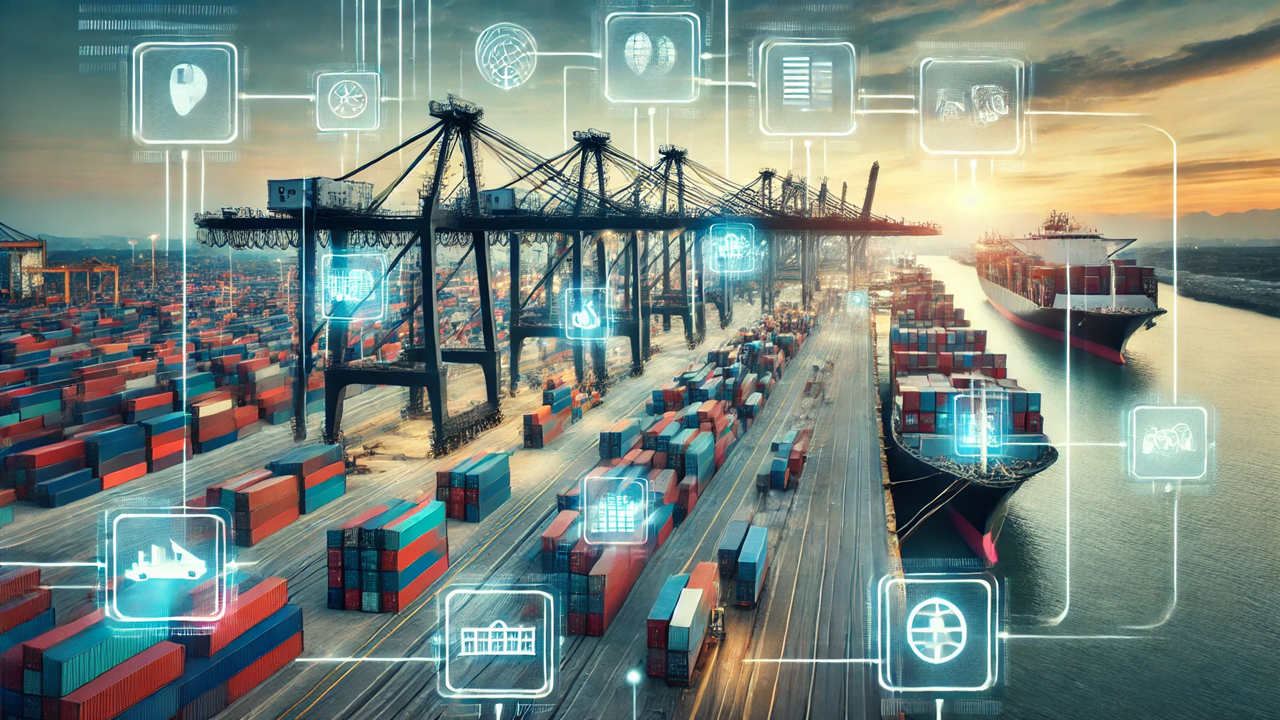What is a Port Community System?
PCS are advanced digital platforms that simplify communication and data sharing across various entities in port logistics. Traditionally, port operations relied heavily on extensive paperwork and isolated systems that slowed down processes and introduced inefficiencies. PCS modernizes this by creating a single entry point for data exchange, enabling smoother interactions between Customs authorities, shippers, port operators, and regulatory bodies.
This system streamlined tasks such as cargo tracking, vessel scheduling, and Customs clearance, providing everyone in the logistics chain with greater visibility and control. According to the World Bank’s report, PCS transforms ports into digital hubs that reduce costs, save time, and ultimately support global trade by improving coordination among port community members.
The Evolution of PCS: From Communication Tools to Data Powerhouses
The report charts the journey of PCS, starting in the 1980s when they were first used as simple communication tools. Today, they have evolved into robust, cloud-based systems that utilize cutting-edge technologies like Artificial Intelligence, Internet of Things (IoT), and blockchain. These advancements allow PCS to go beyond basic data exchange, enabling ports to make data-driven decisions, optimize resources, and even predict potential operational challenges.
This evolution reflects the broader shift in trade logistics toward digital-first solutions. With real-time data and predictive insights at their fingertips, port operators can now address issues before they escalate, allocating resources more effectively and reducing delays across the entire supply chain.
Trends in PCS Adoption: A Global Perspective
PCS adoption varies widely across regions, as the World Bank report highlights. High-income countries, particularly in Europe and Asia, have embraced PCS technology extensively, viewing it as an essential tool for maintaining competitive port operations. Emerging economies, however, often struggle with limited financial and technical resources, which can impede PCS adoption. Yet, there are encouraging signs: regions such as India, Southeast Asia, and Latin America have launched initiatives to integrate PCS into their trade networks, recognizing its potential to streamline operations and support economic growth.
Small Island Developing States (SIDS) are also increasingly adopting PCS to improve trade capacities. For these island nations, whose economies rely heavily on maritime trade, PCS offers a crucial boost to their limited resources, enabling better connectivity and efficiency within global supply chains.
Key Benefits: From Efficiency to Compliance
The benefits of implementing PCS extend far beyond cost savings. By reducing administrative workloads and paperwork, PCS enables quicker cargo processing and minimizes bottlenecks, translating into faster port operations overall. This increased efficiency not only reduces costs but also bolsters compliance with international trade standards. Enhanced visibility and transparency in cargo flows mean fewer risks of fraud and better compliance with trade regulations, ultimately benefiting both ports and global markets.
PCS offers significant advantages for the private sector, including more predictable supply chain management and reduced transaction costs. Cargo owners and shippers, in particular, benefit from improved cargo visibility, which enables them to optimize their logistics and inventory management strategies.
Building Blocks for Successful PCS Implementation
Developing a PCS system requires technical expertise, financial planning, and a supportive governance framework. The World Bank report emphasizes the importance of a comprehensive implementation framework—one that includes well-defined goals, a detailed technical blueprint, and a robust legal structure. Sustainable funding is also essential, as PCS projects require ongoing investment in infrastructure and talent.
The report further outlines the critical role of risk management and stakeholder engagement. Ensuring active participation from all port stakeholders—including Customs, shippers, and regulatory bodies—creates a solid foundation for PCS success. Flexible governance models are also recommended to navigate the diverse interests within port communities, providing an inclusive approach to decision-making and system management.
Challenges and Solutions: Overcoming Barriers to PCS Success
Despite its benefits, PCS implementation is not without its hurdles. Financial constraints, resistance to change, and complex governance structures can present significant challenges, particularly in regions with limited resources. The World Bank report suggests that strong leadership, clear communication, and phased implementation strategies are key to overcoming these barriers. Effective change management, including training and capacity-building initiatives, helps ensure all stakeholders are comfortable and skilled in using the new system.
The Future of PCS: Toward Fully Integrated, Multimodal Platforms
As port operations continue to digitize, the World Bank foresees a new generation of PCS that will integrate even more sophisticated technologies and support multiple modes of transportation. Emerging capabilities like AI-driven analytics, blockchain-enabled security, and IoT-based tracking will further enhance the utility of PCS. These innovations will allow PCS to extend beyond ports, creating multimodal platforms that facilitate the seamless movement of goods across land, sea, and air.
In the future, PCS will support port operations and act as a backbone for global trade, ensuring smoother, faster, and more resilient supply chains. With PCS, ports worldwide are on the brink of a new era in trade logistics, one where digital transformation is not just an advantage but a necessity for success in the global economy.
The World Bank’s report "Port Community Systems: Lessons from Global Experience" provides a comprehensive guide to PCS's current state and future potential. By sharing valuable insights and practical strategies, this report encourages stakeholders across the maritime industry to embrace PCS and unlock the full potential of digitalized trade.











